Introduction
From traditional single-pane windows to the innovative smart window technology, our windows have come a long way. Smart windows has introduced a new level of functionality, energy efficiency, and convenience into our lives. In this blog, we will explore the world of smart window technology, its benefits, various types, applications, and the future trends it holds.
What is Smart Window Technology?
Smart window technology refers to the integration of advanced materials and electronics into windows, allowing them to change their properties dynamically. These windows can alter their transparency, reflectivity, and insulation properties in response to external conditions or user commands.
How Does It Work?
Smart windows utilise various technologies to achieve their dynamic functionality. One common approach is the use of electrochromic materials, which change their optical properties when an electrical voltage is applied. Another method involves thermochromic materials that respond to temperature changes, altering their colour and transparency. Additionally, suspended particle devices and liquid crystal windows are employed to control the amount of light passing through.
Benefits of Smart Windows
Smart windows offer a range of benefits that go beyond the capabilities of traditional windows. Let’s explore some of the advantages they bring.
Energy Efficiency
One of the significant benefits of smart windows is their energy efficiency. By adjusting their transparency or reflectivity, these windows can regulate the amount of solar heat gain, reducing the need for air conditioning or heating. This feature leads to energy savings and a greener, more sustainable environment.
Comfort and Privacy
Smart windows allow for better control over privacy and comfort. With the ability to change their transparency, occupants can adjust the amount of incoming light and glare, creating a more comfortable living or working environment. Furthermore, these windows can switch from transparent to opaque, ensuring privacy when desired.
Health and Well-being
Natural light has a profound impact on our health and well-being. Smart windows enable the optimisation of natural light levels, promoting the circadian rhythm and reducing the reliance on artificial lighting. This feature enhances productivity, mood, and overall health for building occupants.
Types of Smart Windows
Smart windows come in various types, each employing different technologies to achieve their functionality. Let’s explore the most common types of smart windows available today.
Electrochromic Windows
Electrochromic windows consist of a thin film coated with electrochromic materials. By applying an electrical voltage, the window can change its transparency, allowing for adaptive light control and energy savings.
Thermochromic Windows
Thermochromic windows utilise materials that respond to temperature changes. They can alter their colour or transparency based on the external temperature, providing energy-efficient solutions for climate control.
Suspended Particle Devices
Suspended particle devices windows contain a film with suspended particles that can be aligned or disordered. By applying an electrical current, the particles align or disperse, controlling the amount of light transmitted.
Liquid Crystal Windows
Liquid crystal windows use a layer of liquid crystals sandwiched between two glass panes. By applying an electric field, the liquid crystals change their orientation, modulating light transmission and privacy.
Applications of Smart Windows
Smart windows find applications in various industries and sectors, revolutionising the way we interact with our surroundings. Let’s explore some of the key applications.
Residential Buildings
In residential buildings, smart windows offer improved energy efficiency, comfort, and privacy. They allow homeowners to control the amount of natural light, reduce energy consumption, and enhance the overall aesthetics of their homes.
Commercial Buildings
Smart windows have immense potential in commercial buildings, where energy efficiency and occupant comfort are crucial. These windows can contribute to LEED certifications, reduce HVAC costs, and create a pleasant working environment.
Automotive Industry
In the automotive industry, smart windows play a vital role in enhancing the driving experience. They can regulate the amount of incoming sunlight, reduce glare, and improve fuel efficiency by reducing the reliance on air conditioning.
Aerospace Industry
Smart windows find applications in the aerospace industry, where weight and energy efficiency are paramount. These windows can contribute to fuel savings, reduce cabin noise, and enhance passenger comfort.
Future Trends and Innovations
Smart window technology continues to evolve, paving the way for exciting future possibilities. Let’s explore some of the trends and innovations that lie ahead.
Self-Powered Smart Windows
Researchers are working on developing self-powered smart windows that can harvest energy from the surrounding environment. By integrating solar cells or other energy harvesting technologies, these windows can become fully autonomous and sustainable.
Integration with IoT
The integration of smart windows with the Internet of Things (IoT) is another exciting trend. Imagine windows that adjust their properties based on real-time data, such as weather conditions or occupant preferences. This integration can lead to enhanced automation, comfort, and energy efficiency.
Challenges and Limitations
While smart window technology brings numerous advantages, there are also challenges and limitations that need to be addressed. Some of these include high costs, long-term durability, and compatibility with existing infrastructure. Overcoming these hurdles will be crucial for the widespread adoption of smart windows.
In conclusion, smart window technology has transformed the humble window into a dynamic and intelligent element of our built environment. With benefits ranging from energy efficiency and comfort to health and well-being, these windows have a significant impact on our lives. As future innovations and trends continue to shape this field, we can expect even more advanced and sustainable solutions.
Who We Are
Tecdur is the leading manufacturer of smart glass for the UK and Ireland. Tecdur Switchable Glass provides the best clarity, lowest power consumption and lowest haze currently available. We can offer a wide range of specifications to meet project requirements with our switchable glass, cost is dependent on specification, application and design. Please get in contact with us to discuss further.
Please visit our portfolio for a look at completed projects. Keep up to date on our LinkedIn Showcase page


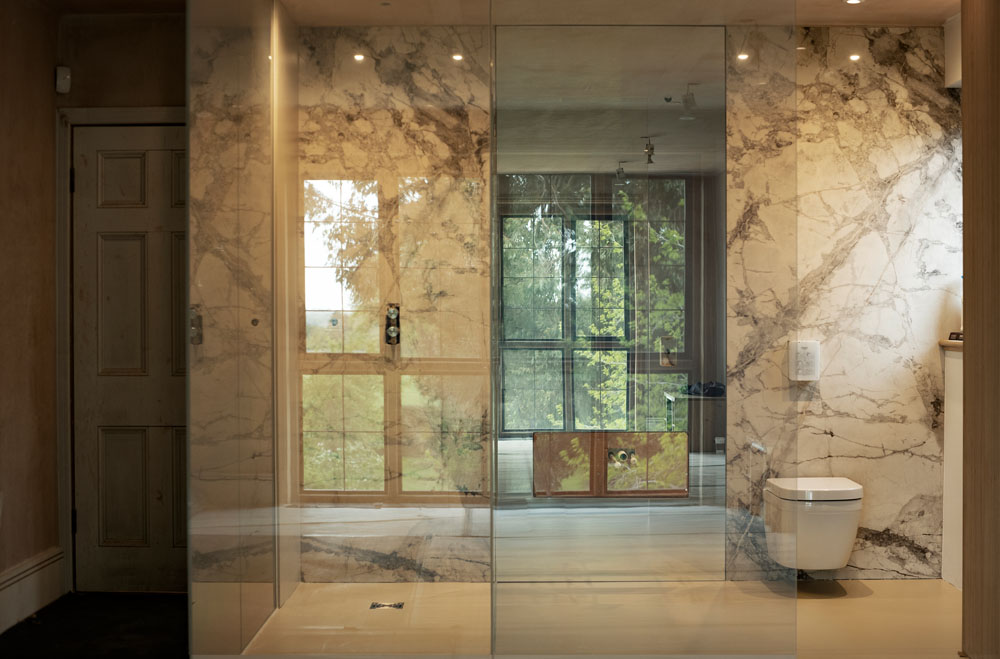
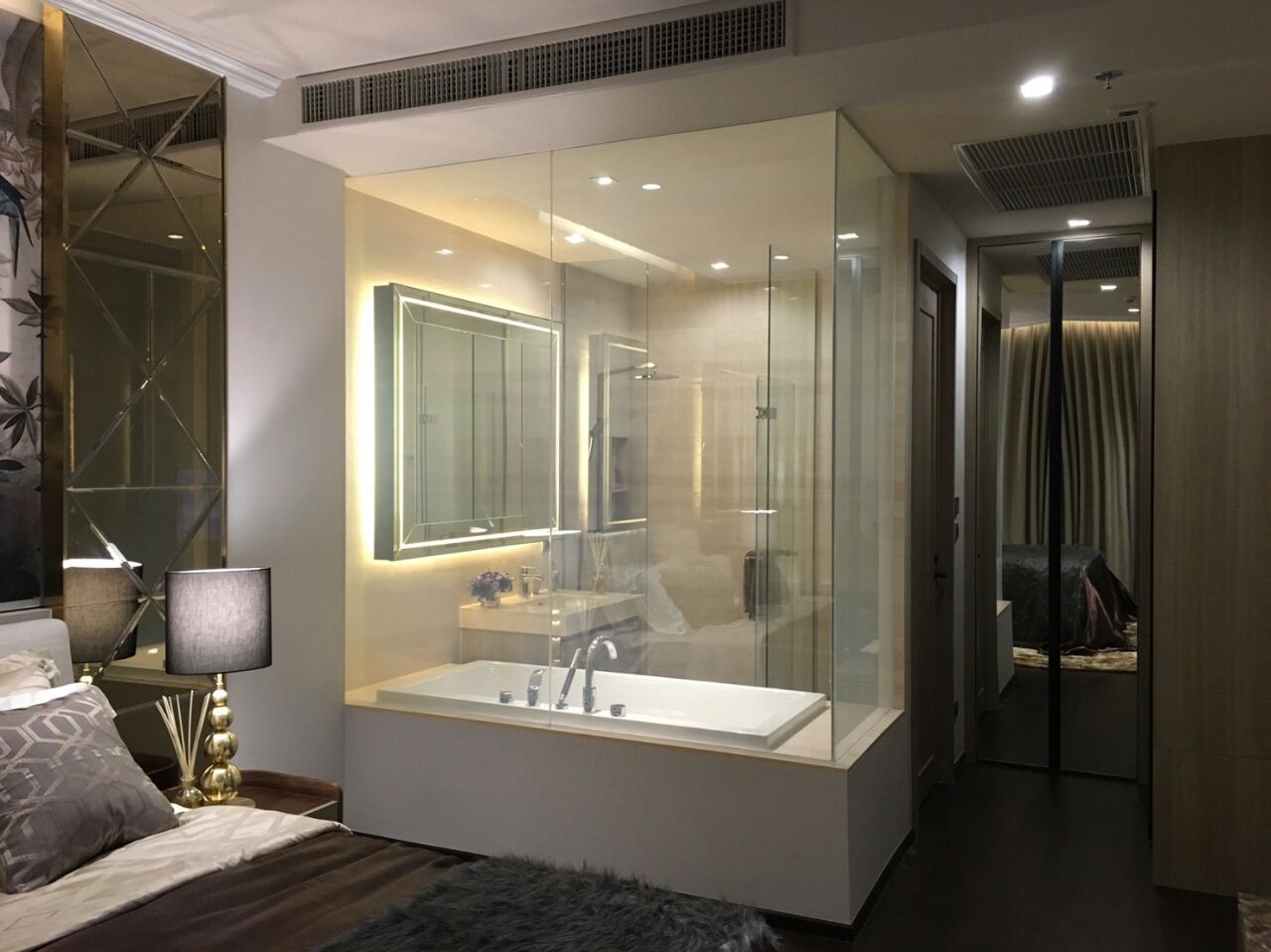
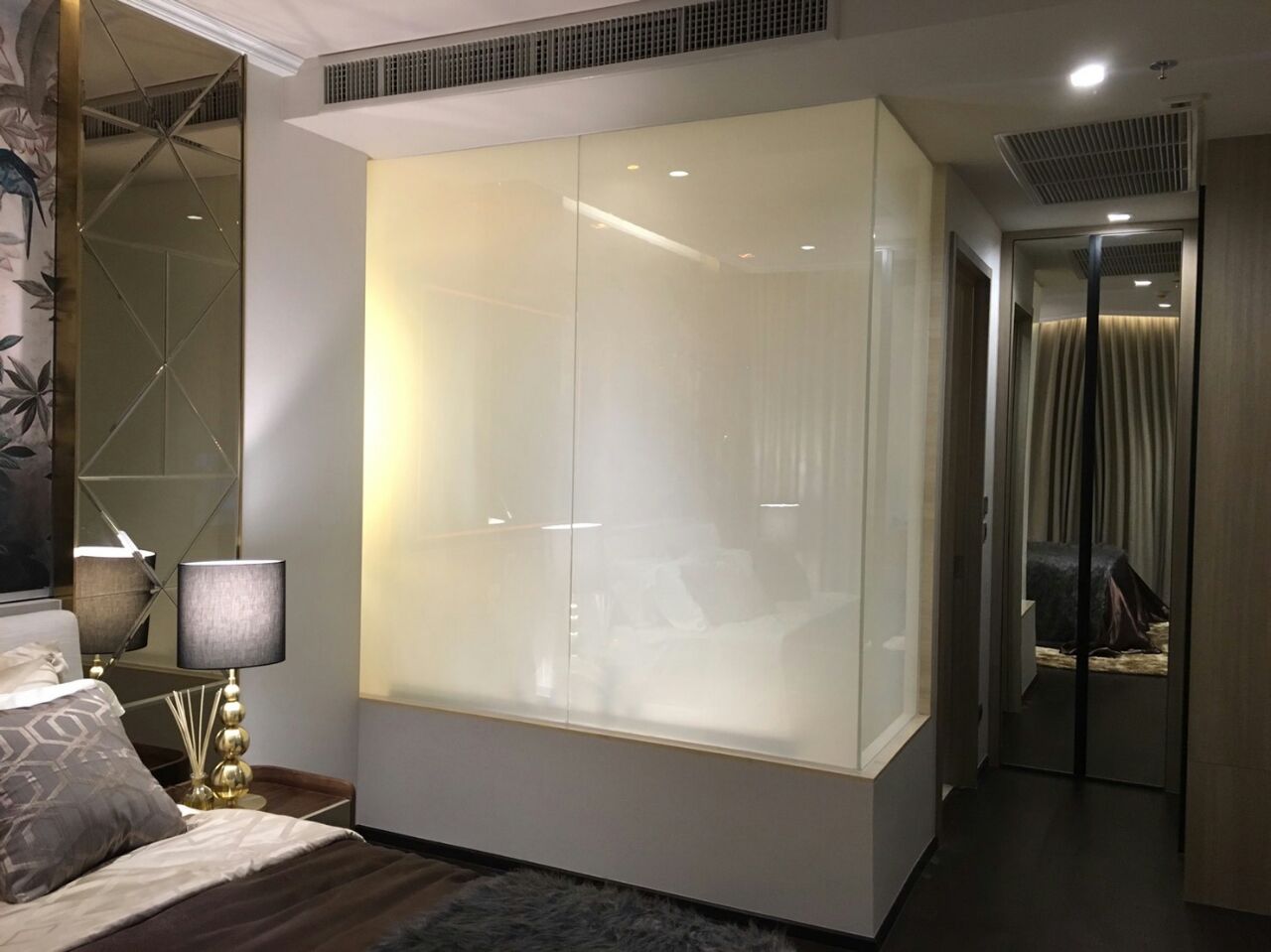
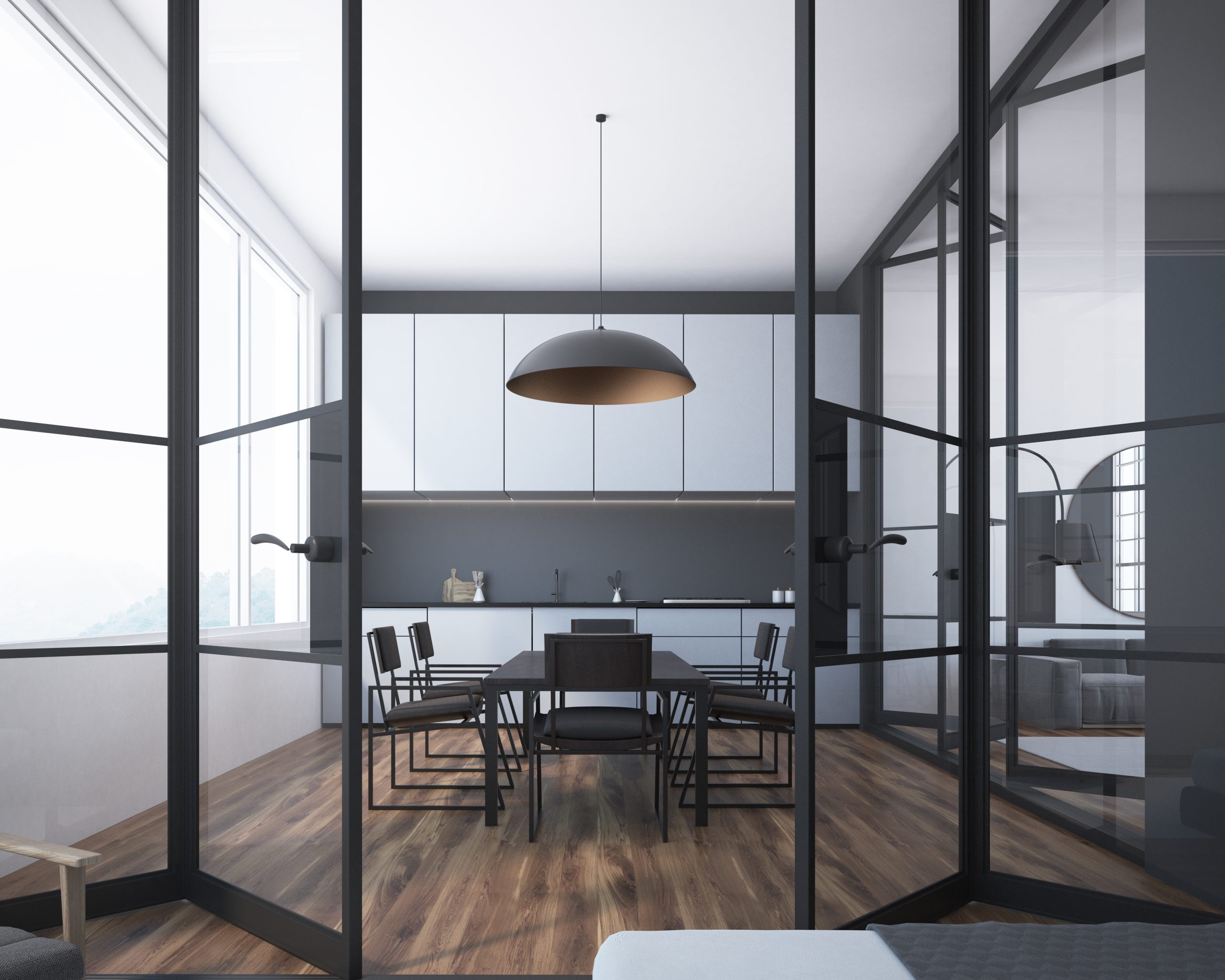
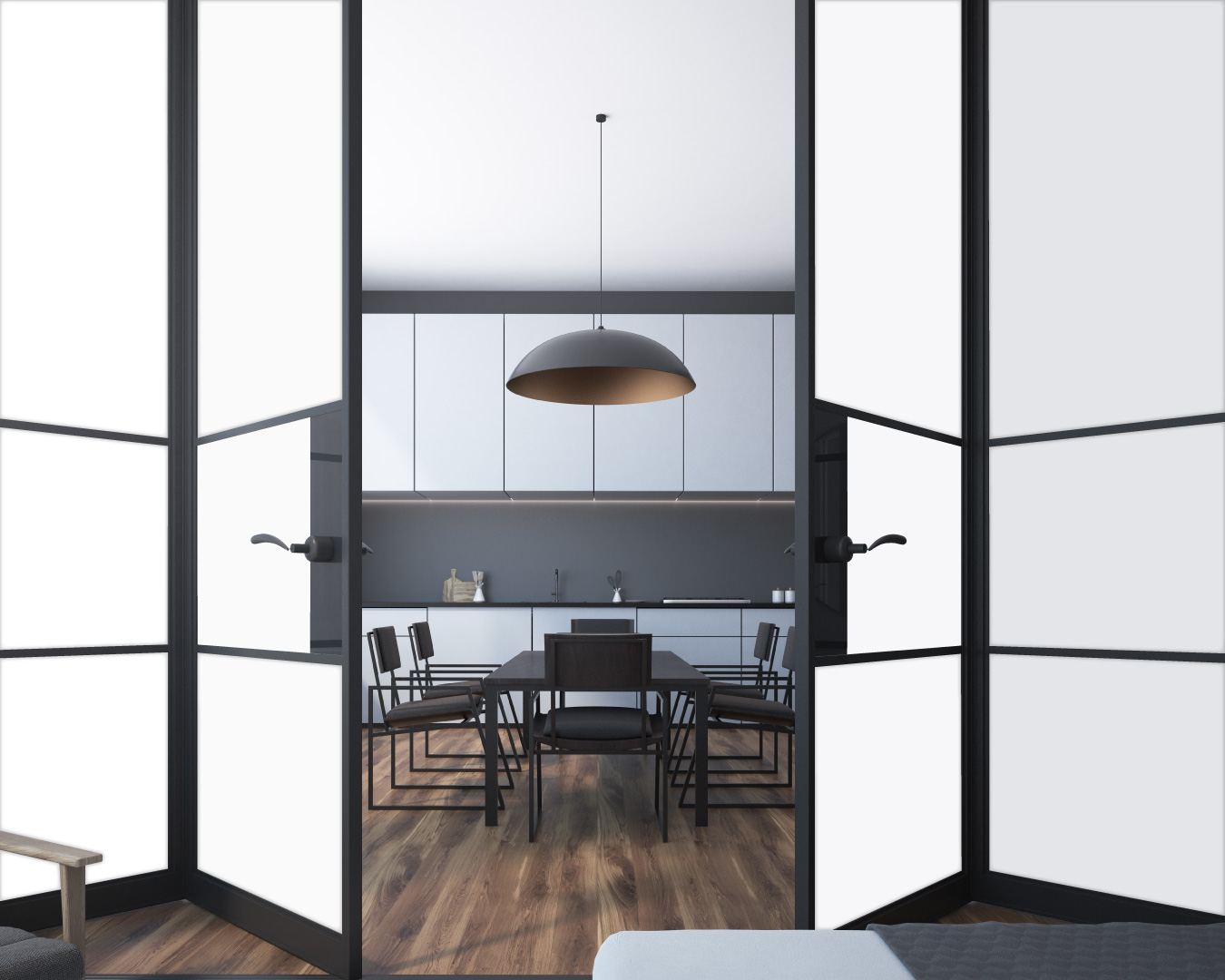
Frequently asked Questions
Our privacy glass works by utilising advanced PDLC (Polymer Dispersed Liquid Crystal) film. When an electrical current is applied, the liquid crystal molecules align, allowing light to pass through, making the glass transparent. When the current is switched off, the molecules mis-align, causing the glass to turn opaque or translucent, providing privacy.
Yes, smart windows can save energy by regulating the amount of solar heat gain and reducing the need for air conditioning or heating.
Absolutely! Smart windows offer enhanced energy efficiency, comfort, and privacy, making them ideal for residential buildings.
Smart window technology finds applications in residential and commercial buildings, automotive industry, and even aerospace industry.
Yes, smart windows can be integrated with IoT technologies, allowing for enhanced automation, comfort, and energy efficiency.
Some challenges include high costs, long-term durability, and compatibility with existing infrastructure. However, ongoing research aims to address these issues and make smart windows more accessible and efficient.




